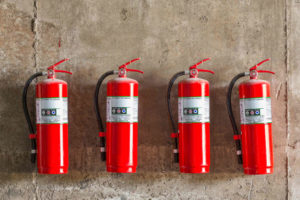
The different classes of fires have their own best approach to putting them out safely.
We all know what a fire is. After all, it’s one of the most fundamental forces of nature. In fact, fire is so abundant that we take it for granted. There are times when the fire blazes control us rather than vice versa. So, what does fire really signify? In this article, we are discussing the different classes of fires.
What is Fire?
Chemistry is the primary focus here since fires are due to a sudden chemical reaction. In addition, a fuel source and the presence of heat to ignite something are the other necessary components to spark a reaction. So, what’s missing from this equation? Oxygen is the last required component. Did you know that fires may be friendly or unfriendly? Despite the situation, fires may be broken into numerous minor categories. Let’s continue.
Various Classes of Fire
The different classes of fires have their own best approach to putting them out safely.
- Class A consists of daily items like paper, wood, and cloth, and it’s one of the most common classes of fires.
- Also, Class B is liquids or gases like gasoline, alcohol, or grease.
- Class C refers to electrical failure from electronic equipment, appliances, and wiring.
- In addition, Class D are metallic substances like titanium, sodium, magnesium, or zirconium.
- Class K is grease or oil fires coming from cooking.
Understanding these different classes of fires can assist you in determining the significant fire risks at your residential or commercial property. In addition, this depends on the fire hazards and fuels present and how to prepare in case of a fire emergency.
Preparing for the Classes of Fires
Being ready for whatever fire danger consists of three main areas of focus: having a suitable fire extinguisher for your fire classes, practicing regular fire safety training, and maintaining all fire equipment in peak condition. If you can hold each of these, you should be able to react in a fire emergency, despite the class of fire you face.
Keep Up with Testing & Maintenance
Remember to inspect your equipment regularly and replace fire extinguishers once they expire. You will also need to inspect your building to ensure it meets fire codes despite your fire protection system, fire alarm requirements, and building capacity.
Ultimately, Judd Fire Protection has the equipment, technology, and expertise you need to help defend against any class of fire.
Commercial and Residential Fire Prevention from Judd Fire Protection
If you want to ensure your home and business are safe throughout the year, trust Judd Fire Protection, LLC. We have over two decades of experience designing, installing, inspecting, and repairing residential and commercial fire protection systems. We serve clients throughout Maryland, Pennsylvania, Washington, D.C., Virginia, and West Virginia. If you are interested in finding out more about our services and protecting your home and business, give us a call at 410-871-3480.
